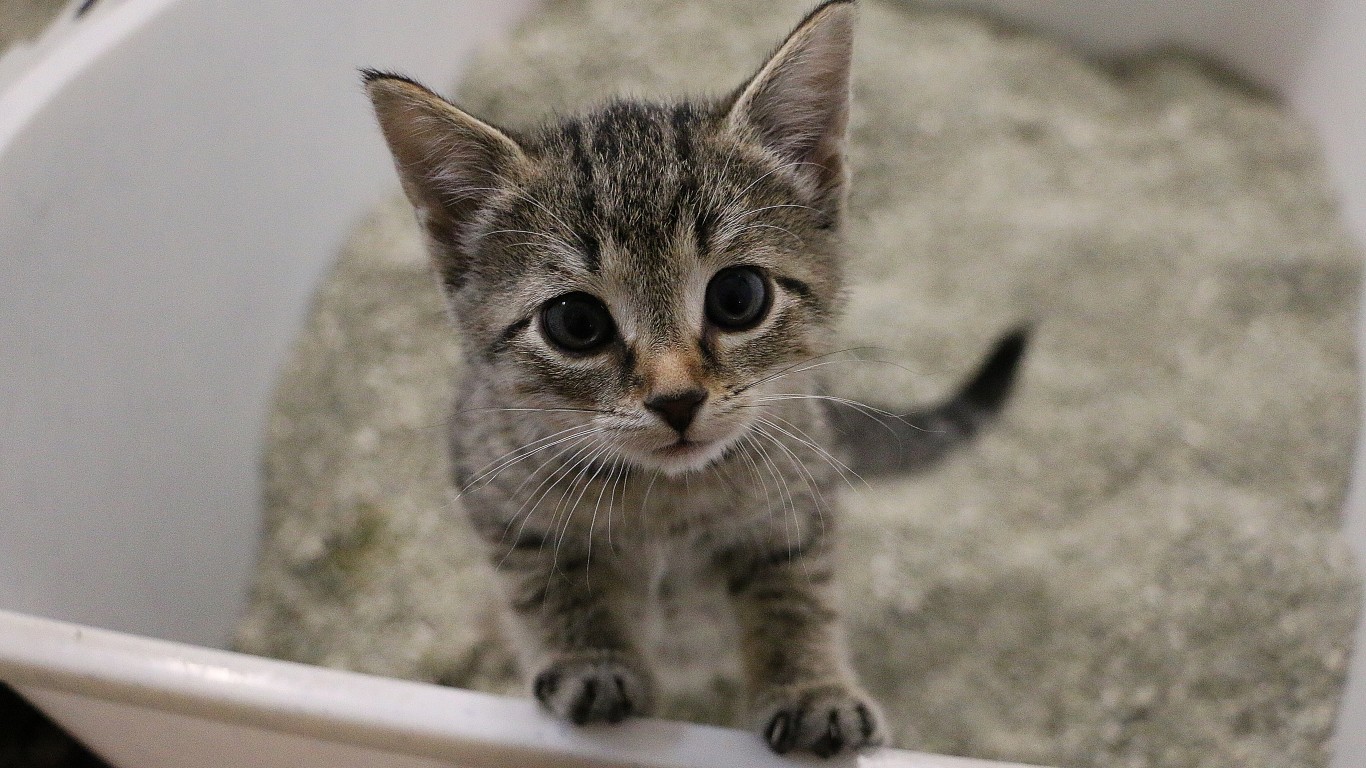
That coworker who pours on so much perfume or cologne you can smell it across the room (but they can barely smell it at all)? That fish-monger who thinks the seafood counter smells fresh and sweet? That daily swimmer who doesn’t realize they’re emanating a cloud of chlorine fumes when they walk by?
They’re all suffering from a condition that might be called “nose blindness.” This isn’t the same thing as anosmia, a medical condition due to nasal inflammation or other physical conditions that blocks the ability to smell anything, either temporarily or permanently. Nose blindness – also called olfactory fatigue – is simply the almost always temporary loss of the ability to detect certain odors after over-exposure to them. You smell something too much, that is, and you stop really being aware of it at all.
We love our pets, but the fact is that they can be rather stinky little creatures, and if we live with them for long enough, a lot of us fail to be aware of how they smell.
According to a recent study conducted by Sunstar QAIS, an indoor air quality brand, 69% of the 2,000 American pet owners polled admitted that they might be nose-blind to pet odors. In addition, 79% of them admit that their living quarters have a pet smell, while 57% of cat owners and 42% of dog owners have been told by visitors that their home smells animal-y – whether or not they’re aware of it themselves. (Dogs can be not just aromatic but visually challenging, too. Here’s a look at the “ugliest” dogs of all time.)
While pets might have bad breath or smell sweaty or dirty in themselves, the main sources of the indoor odors they produce are cats’ litter boxes and puppy pee pads. Roughly a quarter of the folks who should be in charge of changing out these facilities admit that they don’t do it often enough – mostly because they’re too busy – though it might just be that they’re oblivious.
Pet owners should take care of their animals while they can. These are the dogs with the shortest lifespans.
Are You Ahead, or Behind on Retirement? (sponsor)
If you’re one of the over 4 Million Americans set to retire this year, you may want to pay attention.
Finding a financial advisor who puts your interest first can be the difference between a rich retirement and barely getting by, and today it’s easier than ever. SmartAsset’s free tool matches you with up to three fiduciary financial advisors that serve your area in minutes. Each advisor has been carefully vetted, and must act in your best interests. Start your search now.
Don’t waste another minute; get started right here and help your retirement dreams become a retirement reality.
Thank you for reading! Have some feedback for us?
Contact the 24/7 Wall St. editorial team.

